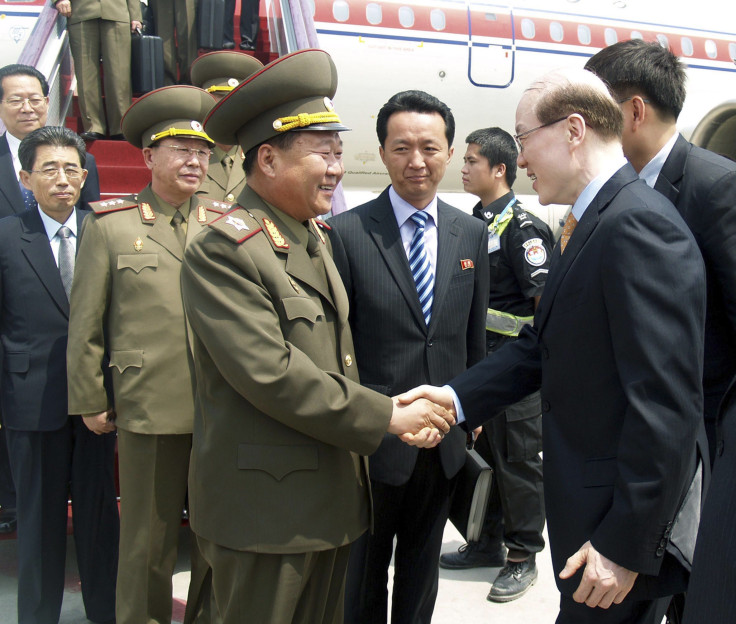Is North Korea Ready To Accept China's Peacemaking Efforts?

Last week, North Korea fired a series of short-range missiles off the eastern coast of the Korean Peninsula, further raising tensions between the pariah state and the international community. Following the missile launches, North Korea also held a boat of Chinese fisherman captive briefly.
Then the North Koreans sent a party of military leaders to Beijing to salvage relations with their only friend.
Now, according to the South China Morning Post, talks between Vice Marshal Choe Ryong-hae, the Korean People’s Army’s top political officer, and his Chinese counterpart, Liu Yunshan, a member of the Communist Party’s Politburo Standing Committiee, were successful. State-run China Central Television reports that Pyongyang announced its willingness to follow Beijing’s suggestions and restart peace talks with relevant parties.
The report said Choe's visit was meant to improve and continue to develop relations between the two ally nations. “North Korea appreciates China’s enormous efforts to maintain peace and stability on the Korean Peninsula and push for a return to talks and consultations on the problems of the Korean Peninsula, and is willing to accept China’s suggestion to have talks with all parties,” Choe said in a statement.
Last Wednesday, Choe’s talks began with Wang Jiaru, head of the Chinese Communist Party’s international liaison department. North Korea’s overture is seen as the “little brother” nation’s way of mending relations with China, their greatest economic and political supporter. China spent much of February trying to defuse the mounting tension at the United Nations Security Council, where many resolutions were introduced to condemn North Korea’s warmongering and nuclear development threats. As China continued to urge restraint on both sides, the North continued to ignore Beijing’s warnings against the incessant nuclear threats.
Now, it seems, the North Koreans are at last ready to listen to their allies. Choe called for creating a peaceful international environment, adding that he hoped to concentrate on improving the nation’s economy and the people's quality of life.
China’s Liu said this means the “restart [of] six-party talks as soon as possible” as a first step in finding “long-lasting peace and stability in northeast Asia and on the Korean Peninsula.” The six parties are North and South Korea, China, Japan, the U.S. and Russia. The talks were halted in 2009 after North Korea conducted its second nuclear test.
Some experts are not as optimistic that North Korea is as ready as China’s government is claiming. “Considering we’ve seen the longest and deepest North Korean nuclear crisis in recent years, other countries need time for such an effect to wear off,” Cui Zhiying, director of the Korean Peninsular Research Center at Shanghai’s Tongji University, said. “North Korea might have to start high-level bilateral dialogue first, which will help towards the resumption of multilateral talks.”
© Copyright IBTimes 2024. All rights reserved.





















